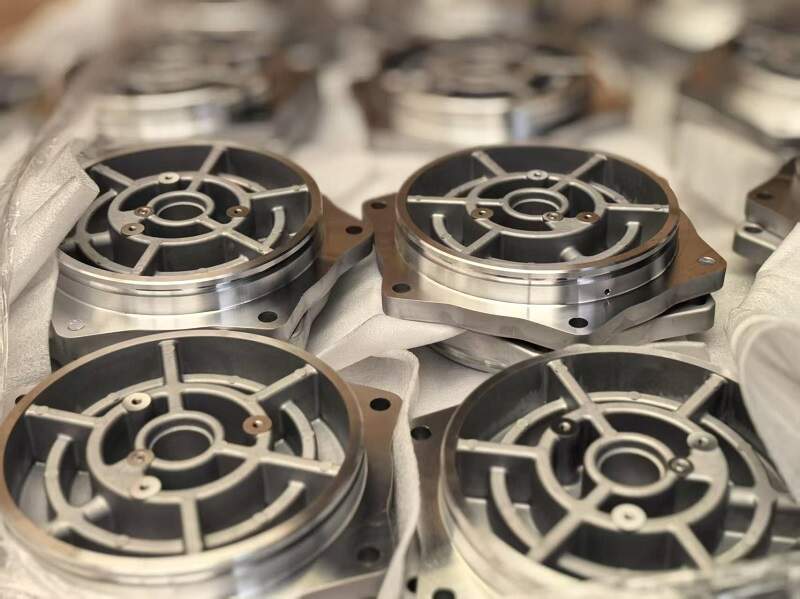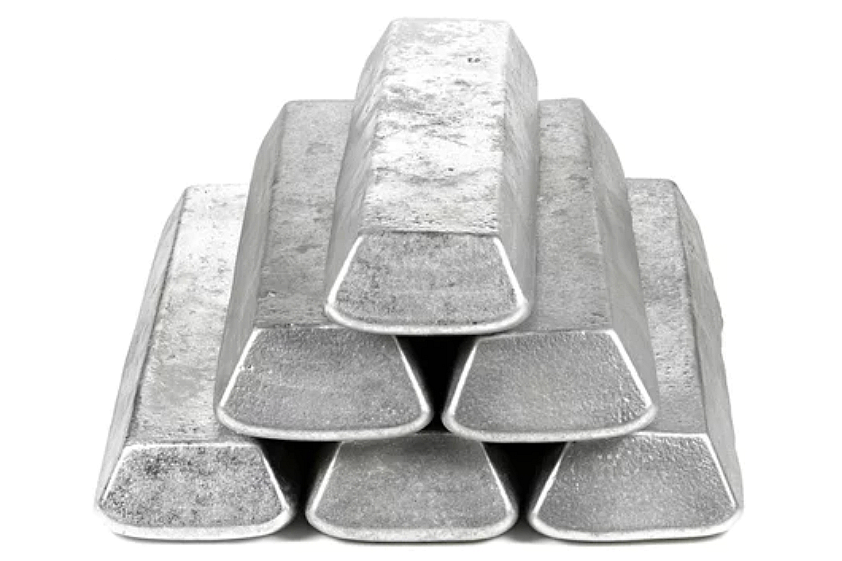Exactly How Aluminum Foundries Contribute to Numerous Industries: A Detailed Summary
Light weight aluminum factories function as essential suppliers across multiple industries, including vehicle, aerospace, building and construction, and electronic devices. They produce elements that are not just lightweight yet additionally resilient, boosting the efficiency of numerous items. With advanced spreading techniques and a dedication to sustainability, these foundries are adapting to fulfill progressing sector demands. As they innovate, the effect of aluminum castings on different applications raises important concerns regarding the future of manufacturing. What exists ahead for this vital industry?
The Role of Aluminum Foundries in the Automotive Industry
As the auto market significantly embraces lightweight materials to enhance gas effectiveness and efficiency, light weight aluminum foundries play a vital role in this development. These centers specialize in the manufacturing of light weight aluminum castings, which are crucial elements in modern lorries. By giving high-strength, lightweight components, aluminum shops make it possible for producers to lower the general weight of lorries, ultimately resulting in improved fuel economy and lowered exhausts.
Light weight aluminum's resistance to rust even more boosts automobile longevity, making it an attractive selection for automakers. Foundries use advanced methods such as die casting and sand casting to produce precise and complex elements, making certain that they satisfy stringent sector requirements. Additionally, the ability to reuse light weight aluminum effectively adds to an extra sustainable production process. As the auto sector continues to introduce, light weight aluminum shops will stay crucial in supplying the materials required for the next generation of cars, sustaining both efficiency and ecological objectives.

Aerospace Applications of Aluminum Castings
Light weight aluminum castings are indispensable to the aerospace market, using a mix of light-weight toughness and sturdiness that is important for aircraft efficiency. These castings are used in different parts, such as engine components, structural structures, and touchdown gear, where weight reduction is crucial for fuel effectiveness and overall security. The convenience of light weight aluminum allows for complex geometries that enhance aerodynamic performance while preserving structural honesty.
Moreover, developments in casting modern technologies have actually improved the accuracy and surface area finish of aluminum parts, reducing the demand for substantial post-processing. This efficiency not just increases manufacturing timelines yet additionally lowers prices, making aluminum an attractive selection for producers. The rust resistance of aluminum assurances longevity and integrity in harsh operating settings, additionally establishing its duty in aerospace applications. As the sector progresses, light weight aluminum spreadings proceed to be an important product, driving advancement and sustaining the advancement of next-generation airplane.
Construction Market Innovations Via Aluminum
The construction market has actually significantly embraced aluminum as a result of its lightweight homes and adaptability, paralleling its effective applications in aerospace. Technologies in aluminum layout have brought about stronger, a lot more efficient structures, making it possible for architects and home builders to explore brand-new possibilities. The material's resistance to corrosion and low maintenance requires make it specifically appealing for both industrial and household tasks.
Aluminum's versatility promotes the creation of intricate styles, permitting aesthetic improvements that were previously tough with conventional products. Prefabrication techniques have actually additionally progressed, making use of aluminum to reduce building time and expenses considerably. In addition, the power effectiveness of light weight aluminum systems-- such as window frameworks and roof covering-- adds to sustainable building techniques, lining up with modern environmental standards. As the construction market remains to accept these developments, aluminum's role is anticipated to broaden, driving further innovation and adding to the advancement of durable frameworks.
Electronics and the Need for Lightweight Light Weight Aluminum Parts
With the quick innovation of modern technology, the demand for light-weight light weight aluminum parts in the electronic devices industry has risen. As devices come to be extra mobile and small, producers seek products that use both sturdiness and weight reduction. Light weight aluminum, original site with its outstanding strength-to-weight ratio, has actually arised as a favored option for elements such as coverings, warm sinks, and structural supports.
The use of light weight aluminum not just enhances product efficiency but also adds to power efficiency, as lighter tools require much less power throughout procedure. Furthermore, aluminum's excellent conductivity makes it optimal for digital applications, ensuring efficient heat dissipation and minimizing the danger of getting too hot.
As consumer preferences change in the direction of light-weight and smooth gadgets, light weight aluminum foundries play a necessary function in satisfying the developing needs of the electronics industry (aluminum casting). Their capacity to produce precise and high-grade light weight aluminum components sustains innovation, making it possible for manufacturers to push the borders of layout and performance
Lasting Practices in Aluminum Foundries
As the electronic devices sector significantly prioritizes sustainability, aluminum factories are adjusting their practices to align with these ecological objectives. Many foundries are carrying out recycling programs that recover light weight aluminum scrap, substantially lowering the need for resources and minimizing waste. By utilizing energy-efficient modern technologies, these facilities are lowering their carbon impact; as an example, employing electric heaters rather than conventional gas-fired ones can result in significant power cost savings.
In addition, aluminum foundries are purchasing water preservation actions, such as closed-loop systems that reuse water used in cooling processes. These methods not just lower water usage but likewise reduce the environmental effect connected with wastewater discharge. Many foundries are discovering sustainable energy resources, such as solar and wind power, to satisfy their power requires sustainably. With these campaigns, light weight aluminum foundries exemplify a dedication to environmental stewardship while remaining to fulfill the demands of the electronics sector.
Future Patterns in Aluminum Factory Technologies
Arising technologies are positioned to transform aluminum shops, boosting performance and item high quality while advancing sustainability initiatives. Technologies such as artificial knowledge and equipment discovering are expected to optimize manufacturing procedures by predicting devices failures and boosting resource allocation. The integration of sophisticated robotics will certainly streamline operations, reducing labor expenses and decreasing human mistake.
Additive manufacturing, or 3D printing, is also getting traction, enabling the production of complex geometries that were previously unattainable with conventional advice methods. This change might bring about considerable product savings and reduced waste. Additionally, wise foundries using IoT (Internet of Things) modern technologies will make it possible for real-time surveillance and information analysis, cultivating positive decision-making.
The adoption of cleaner melting technologies and recycling techniques will better lower the environmental footprint of light weight aluminum factories, making them much more lasting. Collectively, these trends signal a future where light weight aluminum factories can run with higher efficiency and obligation.
Regularly Asked Inquiries
What Are the Environmental Effects of Aluminum Foundries?

Exactly How Do Foundries Make Certain Quality Assurance in Aluminum Spreading?
Factories assure quality assurance in light weight aluminum spreading by executing rigorous examination procedures, using innovative technology, carrying out routine product testing, and sticking to sector requirements, therefore keeping uniformity and dependability in their ended up items. Precision aluminum casting.
What Is the Ordinary Life Expectancy of Light Weight Aluminum Cast Components?
The typical life-span of aluminum cast components usually ranges from 10 to 50 Full Article years, relying on factors such as ecological conditions, use, and maintenance. Proper treatment can significantly boost their durability and performance in time.
Just How Are Aluminum Alloys Selected for Certain Applications?
Aluminum alloys are chosen based on aspects such as stamina, deterioration resistance, weight, and thermal conductivity. Designers review the specific requirements of applications to establish one of the most ideal alloy for best efficiency and durability.
What Are the Safety And Security Laws for Light Weight Aluminum Foundry Employees?
Safety laws for aluminum foundry workers consist of personal protective equipment requireds, air flow requirements, direct exposure limitations to harmful materials, and protocols for dealing with liquified steel. Compliance guarantees employee safety and security and decreases wellness threats related to factory procedures.
As the auto market significantly accepts light-weight products to improve gas efficiency and performance, light weight aluminum foundries play a crucial duty in this development. As customer choices shift towards lightweight and streamlined devices, aluminum foundries play a vital role in fulfilling the progressing demands of the electronic devices sector. As the electronic devices sector significantly focuses on sustainability, aluminum factories are adjusting their techniques to straighten with these environmental goals. Lots of factories are applying reusing programs that redeem aluminum scrap, greatly decreasing the demand for raw materials and lessening waste. Safety and security laws for aluminum factory employees include individual safety equipment requireds, air flow demands, exposure limitations to harmful products, and methods for handling molten steel.